-
 Bitcoin
Bitcoin $117600
0.25% -
 Ethereum
Ethereum $4424
0.10% -
 XRP
XRP $3.101
0.50% -
 Tether USDt
Tether USDt $1.001
-0.01% -
 BNB
BNB $836.2
1.26% -
 Solana
Solana $188.8
2.11% -
 USDC
USDC $1.000
0.01% -
 Dogecoin
Dogecoin $0.2301
0.57% -
 TRON
TRON $0.3485
-1.00% -
 Cardano
Cardano $0.9209
-1.34% -
 Hyperliquid
Hyperliquid $46.72
-1.19% -
 Chainlink
Chainlink $22.62
4.84% -
 Stellar
Stellar $0.4275
-0.38% -
 Sui
Sui $3.761
1.91% -
 Bitcoin Cash
Bitcoin Cash $586.7
-0.25% -
 Ethena USDe
Ethena USDe $1.001
0.01% -
 Hedera
Hedera $0.2510
2.06% -
 Avalanche
Avalanche $24.21
2.22% -
 Litecoin
Litecoin $119.7
1.07% -
 Toncoin
Toncoin $3.450
1.06% -
 UNUS SED LEO
UNUS SED LEO $9.411
-0.93% -
 Shiba Inu
Shiba Inu $0.00001298
1.20% -
 Uniswap
Uniswap $10.98
3.25% -
 Polkadot
Polkadot $3.961
2.16% -
 Dai
Dai $1.000
0.00% -
 Bitget Token
Bitget Token $4.642
0.95% -
 Cronos
Cronos $0.1514
0.57% -
 Ethena
Ethena $0.7290
3.78% -
 Monero
Monero $254.1
7.69% -
 Pepe
Pepe $0.00001102
2.47%
NFT Terminology Guide: Jargon of Collectibles from Floor Price to Gas Fee
Understanding NFT terms like floor price, gas fees, and minting is crucial for navigating the marketplace confidently, whether you're a newbie or a seasoned collector.
May 10, 2025 at 02:43 am
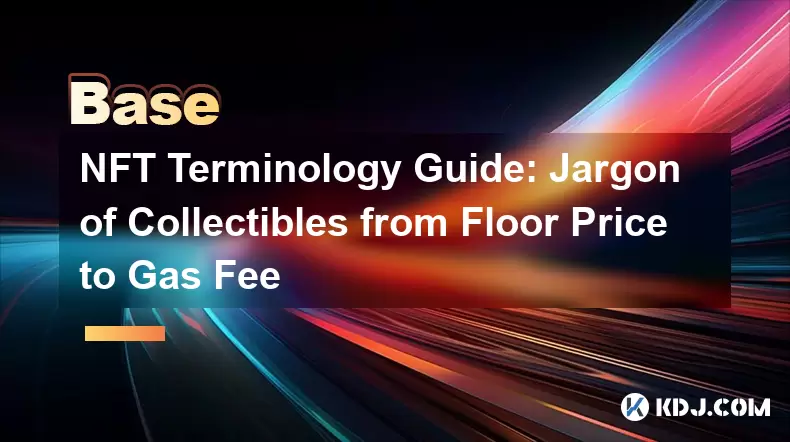
In the fast-evolving world of non-fungible tokens (NFTs), understanding the terminology can be as crucial as the collectibles themselves. From floor price to gas fee, this guide aims to demystify the jargon associated with NFTs, helping both newcomers and seasoned collectors navigate the marketplace with confidence.
What is a Floor Price?
The floor price refers to the lowest price at which an NFT from a specific collection is currently listed for sale. This term is vital for understanding the market value of a collection. A low floor price might indicate a less popular or newer collection, while a high floor price typically suggests a strong demand and perceived value.
To find the floor price of an NFT collection, you can follow these steps:
- Visit a reputable NFT marketplace such as OpenSea or Rarible.
- Search for the specific collection you're interested in.
- Look for the section labeled "Floor Price" or "Lowest Price" on the collection's page.
Understanding Gas Fees
Gas fees are transaction fees on the Ethereum blockchain, which is the most common platform for NFT transactions. These fees are paid in Ether (ETH) and are necessary to process transactions, including minting, buying, or selling NFTs. The amount of gas required depends on the complexity of the transaction and the current network congestion.
To manage gas fees effectively, consider these tips:
- Use gas fee estimators available on blockchain explorers like Etherscan to predict costs.
- Consider transacting during off-peak hours when gas fees tend to be lower.
- Some platforms allow setting a maximum gas fee, which can help in controlling costs.
The Role of Minting in NFTs
Minting is the process of creating a new NFT on the blockchain. When an artist or creator mints an NFT, they are essentially converting their digital asset into a unique, blockchain-verified token that can be owned and traded.
The steps to mint an NFT can vary by platform, but a general process includes:
- Preparing your digital asset (artwork, music, etc.).
- Connecting your cryptocurrency wallet to the NFT platform.
- Uploading your asset and filling out metadata such as title and description.
- Paying the required gas fee to mint the NFT.
What Does 'Whitelist' Mean in NFT Context?
In the NFT world, a whitelist is a list of addresses that are pre-approved to participate in certain events, such as exclusive mints or sales. Being on a whitelist often grants early access to buy NFTs before they are available to the general public, which can be a significant advantage in high-demand collections.
To get on a whitelist, you might:
- Follow the project's social media channels for announcements.
- Participate in community events or contests organized by the project.
- Sometimes, projects require you to hold a certain token or NFT to qualify for the whitelist.
Deciphering Royalties in NFTs
Royalties are a percentage of the sale price that is automatically paid to the original creator of an NFT whenever it is sold on the secondary market. This feature is unique to NFTs and provides ongoing revenue for creators.
To set up royalties on your NFT, you typically need to:
- Specify the royalty percentage during the minting process on the NFT platform.
- Ensure that the platform you're using supports royalty payments.
- Understand that different platforms might have different rules about how royalties are enforced and distributed.
The Significance of Rarity in NFT Collections
Rarity in NFTs refers to how unique or scarce an NFT is within its collection. Rarity can affect the value of an NFT, with rarer items often commanding higher prices. Factors contributing to rarity can include unique traits, limited editions, or special attributes.
To assess the rarity of an NFT, you can:
- Use rarity tools and rankings available on some NFT marketplaces.
- Look at the traits and attributes listed for the NFT on its detail page.
- Compare similar NFTs within the same collection to gauge relative rarity.
Navigating the Concept of 'Burning' NFTs
Burning an NFT means permanently removing it from circulation by sending it to a blockchain address from which it cannot be retrieved. Burning can be used to create scarcity, increase value, or fulfill certain project mechanics.
To burn an NFT, you generally need to:
- Identify the specific NFT you wish to burn.
- Use the platform's burning feature, if available, or manually send the NFT to a 'burn address.'
- Confirm the transaction and pay the associated gas fee.
Frequently Asked Questions:
Q: How can I tell if an NFT is a good investment?
A: Determining if an NFT is a good investment involves several factors, including the reputation of the creator, the perceived value of the artwork, the rarity of the NFT, and market trends. Research the project's community, look at the floor price and historical sales data, and consider the long-term potential of the collection.
Q: Can I change the metadata of an NFT after it's been minted?
A: Once an NFT is minted, its metadata is generally immutable. Some platforms offer limited editing capabilities, but changing core details like the image or title is usually not possible. Always check the specific policies of the platform you're using.
Q: What happens if I can't afford the gas fees to buy an NFT?
A: If gas fees are too high, you might want to wait for a period of lower network congestion. Some platforms also offer bundled transactions or gas-free minting options, which can be more cost-effective. Always consider the total cost, including gas fees, when planning to buy an NFT.
Q: Are there any legal considerations I should be aware of when buying or selling NFTs?
A: Yes, legal considerations can include copyright issues, tax implications, and platform-specific terms of service. It's important to ensure you have the rights to the digital asset you're minting and to understand any potential tax obligations related to buying, selling, or earning from NFTs. Consulting with a legal professional familiar with digital assets can be beneficial.
Disclaimer:info@kdj.com
The information provided is not trading advice. kdj.com does not assume any responsibility for any investments made based on the information provided in this article. Cryptocurrencies are highly volatile and it is highly recommended that you invest with caution after thorough research!
If you believe that the content used on this website infringes your copyright, please contact us immediately (info@kdj.com) and we will delete it promptly.
- Kazakhstan's Crypto Leap: Bitcoin ETF and Central Asia's Digital Finance Future
- 2025-08-13 12:45:19
- BlockDAG Presale Blazes Past $371M: Fundraising Frenzy Fuels Crypto Sensation
- 2025-08-13 13:05:21
- Meme Coins: Chasing the 2025 Surge – Which Will Moonshot?
- 2025-08-13 10:25:23
- Bitcoin's Wild Ride: Rally, Pullback, and What's Next
- 2025-08-13 10:25:23
- Bitcoin, Bitmax, and Institutional Demand: A New Era of Crypto Investment
- 2025-08-13 10:45:12
- Solana, ROAM, and Airdrops: What's the Buzz in 2025?
- 2025-08-13 11:35:13
Related knowledge
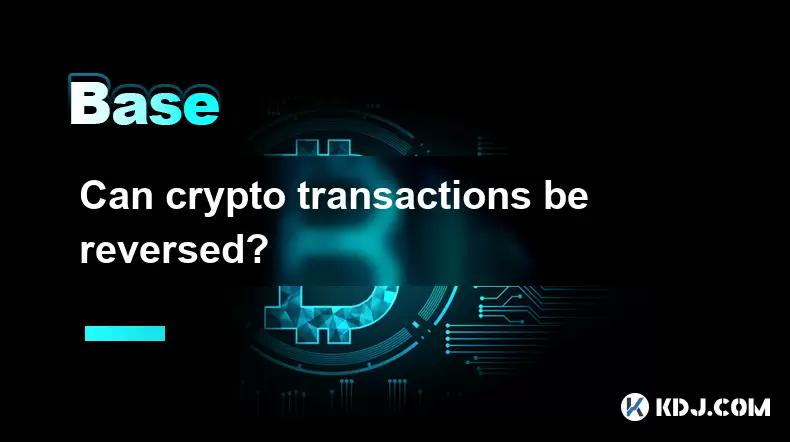
Can crypto transactions be reversed?
Aug 10,2025 at 01:35am
Understanding the Immutability of Blockchain TransactionsCryptocurrency transactions are built on blockchain technology, which is designed to be immut...
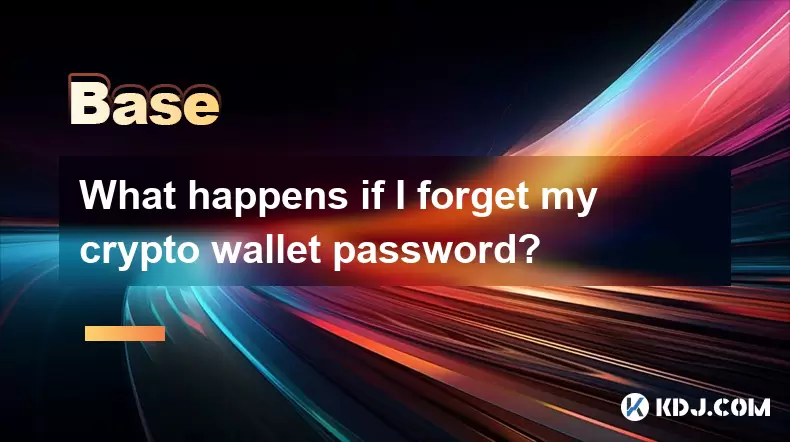
What happens if I forget my crypto wallet password?
Aug 09,2025 at 08:50am
Understanding the Role of a Crypto Wallet PasswordA crypto wallet password serves as a critical security layer that protects access to your digital as...
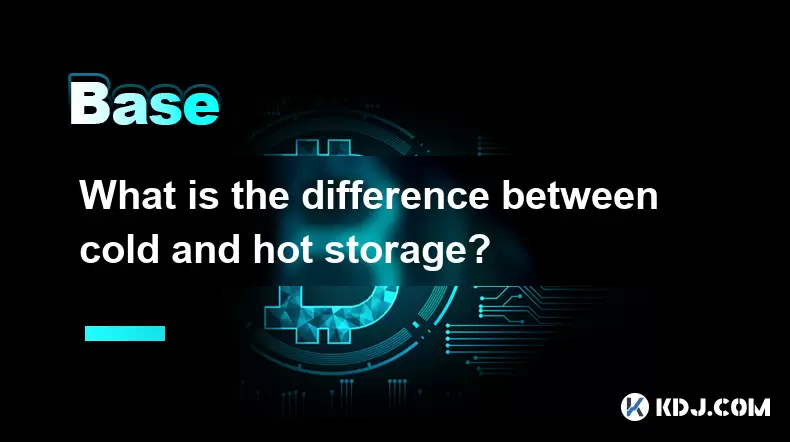
What is the difference between cold and hot storage?
Aug 12,2025 at 01:01am
Understanding Cold Storage in CryptocurrencyCold storage refers to offline methods of storing cryptocurrency private keys, ensuring they are not expos...
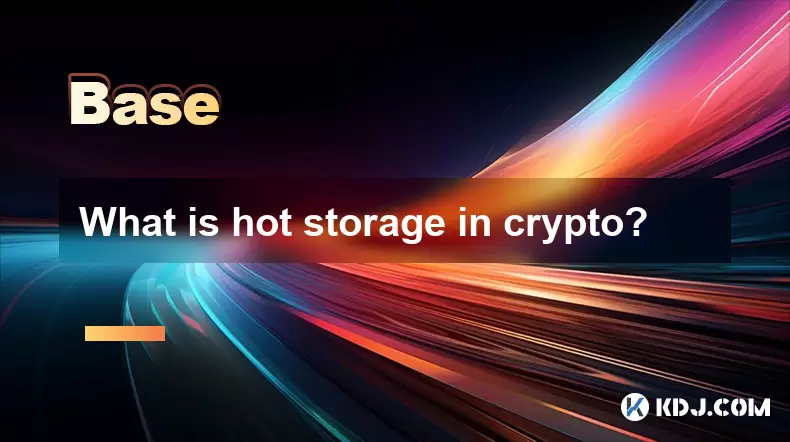
What is hot storage in crypto?
Aug 11,2025 at 07:08am
Understanding Hot Storage in CryptocurrencyHot storage refers to cryptocurrency wallets that are connected to the internet. Unlike cold storage soluti...

What is cold storage in crypto?
Aug 13,2025 at 11:35am
Understanding Cold Storage in CryptocurrencyCold storage in cryptocurrency refers to a method of storing digital assets offline, away from internet-co...
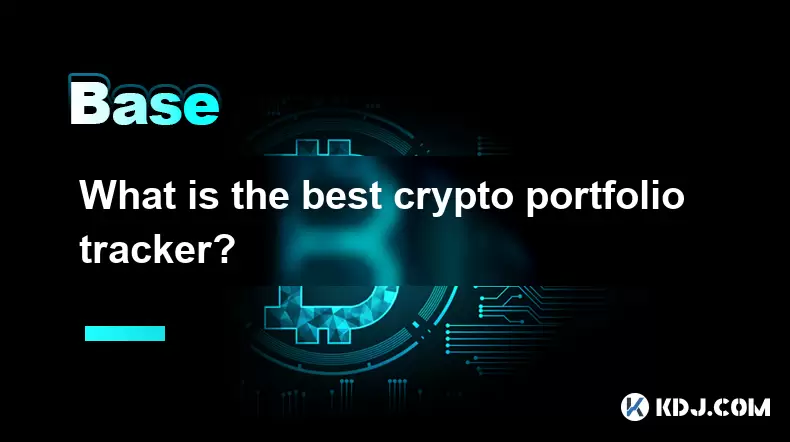
What is the best crypto portfolio tracker?
Aug 10,2025 at 05:08am
Understanding the Role of a Crypto Portfolio TrackerA crypto portfolio tracker is a digital tool designed to help investors monitor the performance of...

Can crypto transactions be reversed?
Aug 10,2025 at 01:35am
Understanding the Immutability of Blockchain TransactionsCryptocurrency transactions are built on blockchain technology, which is designed to be immut...

What happens if I forget my crypto wallet password?
Aug 09,2025 at 08:50am
Understanding the Role of a Crypto Wallet PasswordA crypto wallet password serves as a critical security layer that protects access to your digital as...

What is the difference between cold and hot storage?
Aug 12,2025 at 01:01am
Understanding Cold Storage in CryptocurrencyCold storage refers to offline methods of storing cryptocurrency private keys, ensuring they are not expos...

What is hot storage in crypto?
Aug 11,2025 at 07:08am
Understanding Hot Storage in CryptocurrencyHot storage refers to cryptocurrency wallets that are connected to the internet. Unlike cold storage soluti...

What is cold storage in crypto?
Aug 13,2025 at 11:35am
Understanding Cold Storage in CryptocurrencyCold storage in cryptocurrency refers to a method of storing digital assets offline, away from internet-co...

What is the best crypto portfolio tracker?
Aug 10,2025 at 05:08am
Understanding the Role of a Crypto Portfolio TrackerA crypto portfolio tracker is a digital tool designed to help investors monitor the performance of...
See all articles

























































































